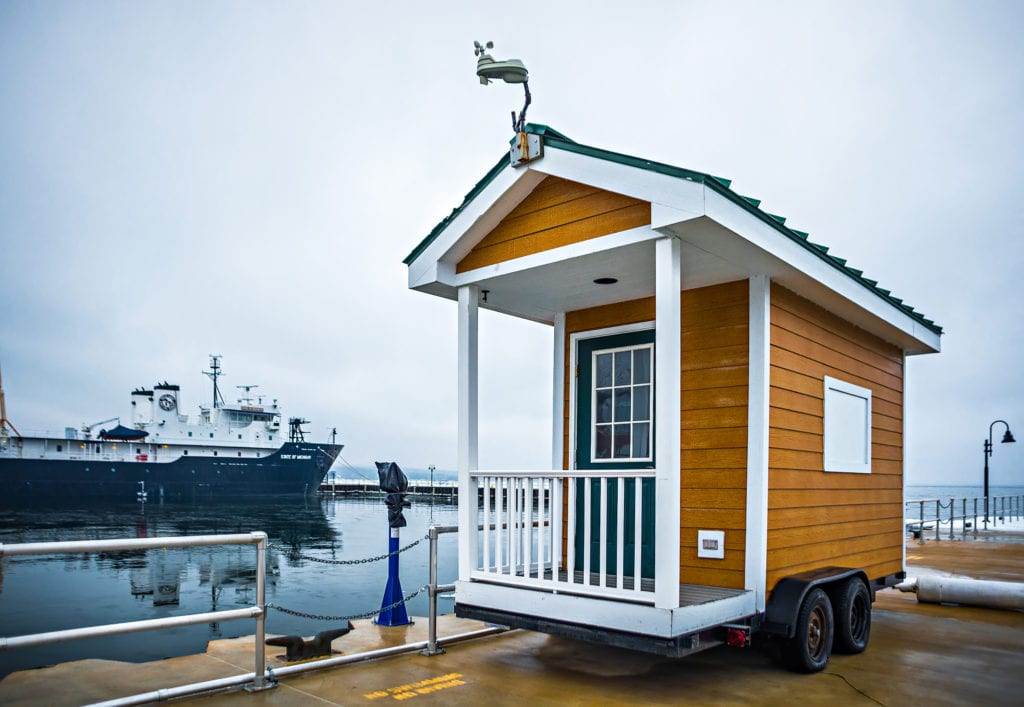Physical Address
304 North Cardinal St.
Dorchester Center, MA 02124
Physical Address
304 North Cardinal St.
Dorchester Center, MA 02124

Living in a tiny home can be a great way to spend your retirement. So it’s no surprise that the tiny house movement is such a popular one for seniors.
However, a tiny home is not ideal for all seniors. Could a tiny home be a good fit for you?
Below we’ll dive into the pros and cons of tiny houses for seniors. The info here will help you decide whether or not a tiny home makes sense for you and your lifestyle.
Let’s dig in, shall we?!
Now, we all know senior living can be quiet expensive. In traditional senior living settings you have plenty of expenses to worry about.
Mortgages. Utility bills. Medical care. And more.
However, living in a tiny home can help you cut back on expenses.
Tiny houses cost way less than a full-sized house. And because you’re living in a tiny space, the costs are typically way less too. Less room means less furniture. Utility use will be a lot less so those costs will be lower too.
This all adds up to a lot of cost savings for seniors in tiny homes.
Most people take out a mortgage on their homes. Most people simply don’t have the cash to buy a home outright. And mortgages, particularly the interest on them, only increase the long term cost of a home.
In a tiny home, because they tend to be so cheap, you can own your house free and clear without ever thinking of mortgage payments again!
As previously mentioned, tiny homes consume less energy. This means your bills for water, electricity, fuel, and waste disposal will be a lot less than in a full-sized home.
Plus, you can use natural resources such as wood for a small wood stove outdoors, and a small solar array for your electricity. Additionally, most tiny homes these days use composting toilets. These toilets help break down waste without having to be hooked up to a sewage system. And that’s just one less bill for you to worry about!
You’re living in a tiny home, which means you’ll have a much smaller carbon footprint.
Think about it…
… It doesn’t require a large plot of land. You’re utility usage is much lower. And you’re only using the bare necessities to live your best life. All that reduces your impact on our planet’s precious resources.
Most tiny homes are built on trailers (though are smaller than mobile homes). This means you can take your tiny home along with you if you ever want to move to a new city.
So with a tiny home, you can enjoy life on the road without having to sacrifice the comfort of your home. Try doing that with a regular sized house!!!
It’s just common sense. The smaller your home is, the easier it is to maintain. Cleaning is a breeze because the house is so small. There’s a lot less room for dust and clutter to pile up.
And repairs typically cost much less. So in a tiny home you’ll get to spend less time on chores and more time enjoying life!
Living off-grid is something everyone should try at least once their lives. It helps bring you closer to nature and enjoy all that Mother Earth has to offer.
When there are pros, there are cons as well. Because nothing is perfect. So here are some possible drawbacks of living in a tiny home.
We have already established that living in a tiny home means having fewer luxuries. You’re really just living with the bare necessities.
Tiny homes have smaller bedrooms, toilets, and, well, pretty much a smaller everything.
So if you’re someone who’s used to living in luxury, a tiny home might not be the ideal setting for you.
Again, a tiny home is relatively small. This means it doesn’t have room for any unnecessary junk. In a tiny home you pretty much have to make do with most important things to you and the basic necessities to help you live comfortably.
In a lot of towns, it can be difficult to build a tiny home. This mainly due to zoning laws.
Most zoning laws often include a minimum size for dwellings. This means that a 200-square-foot tiny house may not be big enough.
Most banks don’t consider tiny homes to have enough value to make good collateral. Because of this, it’s pretty much impossible to take out a standard mortgage loan to buy one.
So if you don’t have enough cash to buy a tiny home, it will be difficult to afford one. That said, all hope is not lost! There are some who finance their tiny homes by taking out personal loans.
As previously mentioned, tiny homes are not for every senior. Ideally, tiny homes are great for seniors in their early 60s who want to live their life on the road and experience the outdoors more.
However, for seniors who need more medical care and specialized care, a tiny home is not an ideal option. It simply doesn’t have enough room for medical equipment, nurses, and caregivers.
So there you have it! The pros and cons of tiny houses for seniors. Do you think we left anything out? Let us know in the comments below.